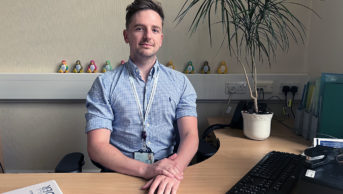
Mclean/Shutterstock.com
The NHS’s medicines bill just keeps on growing.
Over the past ten years, estimated total NHS spending on medicines in England has grown by around £6bn — from £13.0bn in 2010–2011 to the current value of £20.9bn — making medicines the NHS’ biggest cost after staffing.
Secondary care, in particular, has seen significant increases in spending on medicines, with estimated costs growing at around 12% per year, on average, since 2010–2011.
In 2019–2020, North Tees and Hartlepool NHS Foundation Trust ran into some financial difficulty and it became necessary for us to make some efficiencies in the medicines budget. Our finance team gave us medicines efficiency target of £1m by the end of the year.
The pharmacy and medicines optimisation team worked with the medical and nursing teams, in addition to the finance department and commissioners, to develop several work streams that would find ways to make these efficiency savings, while improving patient care too.
These work streams included switching some patients on to different medicines in consultation with consultant medical colleagues; conducting clinical audits of outpatient prescribing in line with national policy; and ensuring that robust processes are in place for minimising medicines waste within the organisation.
We couldn’t have done this work without the Model Hospital dashboard for medicines optimisation, which was developed by NHS England to meet recommendations set out in the 2016 Carter review. The dashboard enables us to compare our medicines use and spending with other similar trusts, highlighting possible opportunities on certain medicines.
We also networked with other trusts on a local, regional and national level to share our learning and work collaboratively across our integrated care system to improve the quality of prescribing.
All of this required us to work very closely with other teams in the trust, as well as local and specialised NHS England commissioning teams.
By the end of the 2019–2020 financial year — through these different initiatives — we more than doubled our efficiencies target, saving £2.4m.
These savings have allowed us to plan to replace two scanners in the trust meaning that more patients can be seen, and they have also allowed us to invest in clinical pharmacy and medicines safety.
As a result of our efforts, our team was also honoured with an award from Future-Focused Finance — a national programme designed to engage everyone in improving NHS Finance — for significantly exceeding expectations in achieving value for money through medicines optimisation.
Medicines are the most frequent intervention in the NHS and getting the best value from them through effective clinical pharmacy and collaboration with the multidisciplinary team has been critical in our processes. The streamlining of our medicines and the associated costs have been critical in ensuring that public funding is used appropriately for our clinical services. We are really proud of the team’s achievements.
Umair Hamid, associate chief pharmacist (operations); Mojgan H Sani, director of medicines optimisation and chief pharmacist, North Tees and Hartlepool NHS Foundation Trust
